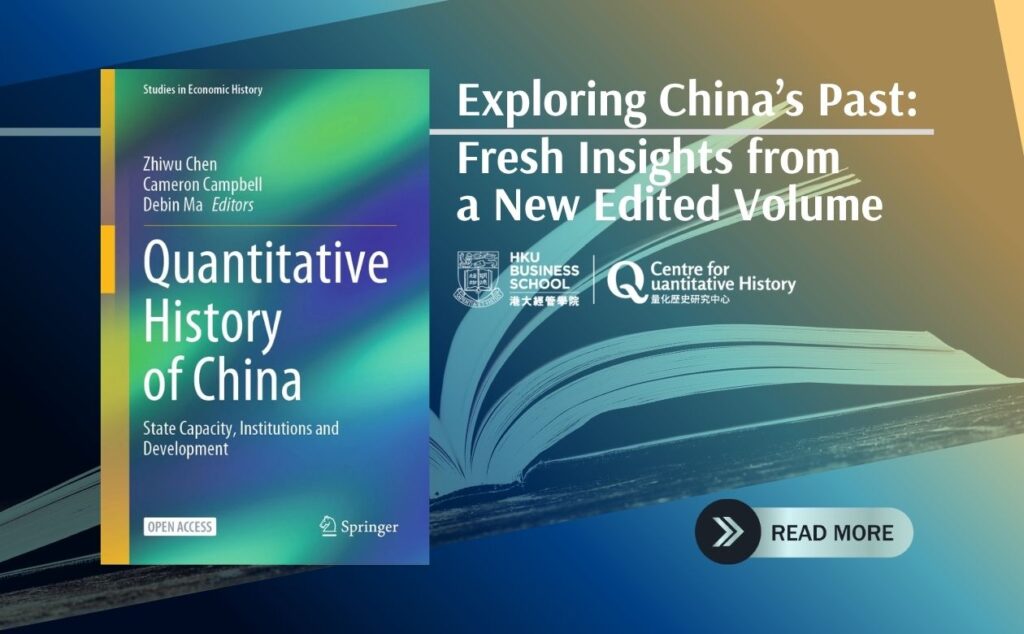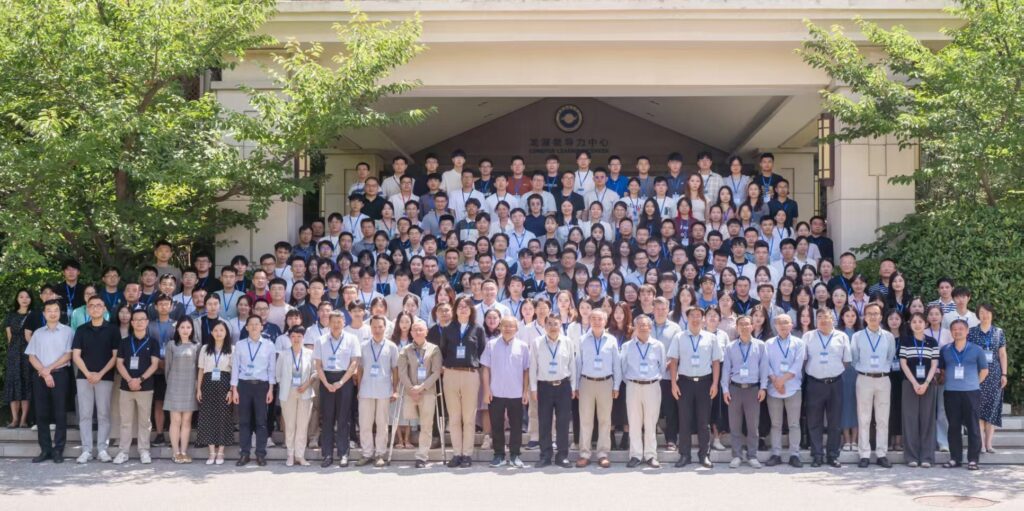











ANCIENT ROOTS FROM QUANTITATIVE PERSPECTIVES
Explores prehistoric and historical China through archaeological data and discoveries.
CULTURE, RELIGION AND LONG-TERM CONSEQUENCES
Examines religious interactions and economic impact on China's development.
STATE CAPACITY, INSTITUTIONS AND DEVELOPMENT
Quantifies state capacity in historical China, examining evolution and impact on outcomes.
FINANCIAL HISTORY, TRADE AND THE RISE OF HONG KONG AS A FINANCIAL CENTRE
Examines China's financial development, historical influences, and trade dynamics.

ANCIENT ROOTS FROM QUANTITATIVE PERSPECTIVES
Explores prehistoric and historical China through archaeological data and discoveries.
CULTURE, RELIGION AND LONG-TERM CONSEQUENCES
Examines religious interactions and economic impact on China's development.
STATE CAPACITY, INSTITUTIONS AND DEVELOPMENT
Quantifies state capacity in historical China, examining evolution and impact on outcomes.
FINANCIAL HISTORY, TRADE AND THE RISE OF HONG KONG
Examines China's financial development, historical influences, and trade dynamics.

Area of Excellence (AoE) Project
Quantitative History of China:
Historical Roots of Recent Success and Future Development
“Uniquely among nations, China has a wealth of historical and archaeological archives covering almost all aspects of society, from politics to business, law and regulation, crime and unrest, family and lineage, culture and customs, religion and social organisation and science. Many of these records have been recently digitised, offering quantitative historians an unprecedented opportunity to re-examine various aspects of China’s past.”
Professor Zhiwu Chen
Project Coordinator
News Highlights

The Financial History, Trade and the Rise of Hong Kong Cluster of the Area of Excellence project, under the Centre for Quantitative History, successfully held the first HKU Financial History Workshop on December 2–3, 2025 at May Hall, The University of Hong Kong.

Bringing together scholars from HKU, CUHK, HKUST and HKBU, the event marked the beginning of a new local academic exchange platform for economic historians.

The global economic history community is celebrating a remarkable achievement — and here at the Centre for Quantitative History (CQH), we share in that pride as we honour Professor Joel Mokyr’s 2025 Nobel Memorial Prize in Economic Sciences alongside Professors Philippe Aghion and Peter Howitt, in recognition of their ground‑breaking work on innovation‑driven economic growth.

The Centre for Quantitative History (CQH) is proud to announce the forthcoming publication of Quantitative History of China: State Capacity, Institutions, and Development, an edited volume that represents a milestone in the study of China’s long-run political, social, and economic development.

The Eleventh Quantitative History Summer School continued the tradition of inviting distinguished scholars from around the world to lead sessions. It took place in Qingdao and Yantai, Shandong, China. The event unfolded at Shandong University’s Qingdao campus from July 5 to 11 and at the Longfor Leadership Centre in Yantai from July 11 to 14. This Quantitative History Summer School is jointly organized by the Centre of Quantitative History at HKU Business School, the School of History at Shandong University, the School of Archaeology at Shandong University, the School of Economics at Shandong University, and the Institute of Qing History at Renmin University of China, in collaboration with the International Society for Quantitative History and the HK Institute for Humanities and Social Sciences.

Sign Up for News

Join Upcoming Events
 Webinars
WebinarsIn this Quantitative History Webinar, Qin Jiang will demonstrate that while the examination system indeed provided avenues for social mobility, the influence of family background was more evident in elevating descendants to higher examination degree.
 January 29, 2026
January 29, 2026Quick Access
Begin your discovery with just one click, effortlessly.











